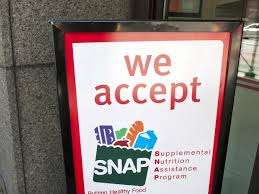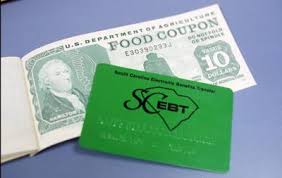 Food stamps — formally known as the Supplemental Nutrition Assistance Program, or SNAP — support young and old, healthy and disabled, the working and the unemployed, making it the closest thing the United States has to a guaranteed income. Though administered by states, the benefits are paid by the federal government, with no spending cap, and the program has largely avoided the delays that have plagued unemployment insurance. After long pushing to reduce SNAP usage, claiming it promotes dependency and waste, the Trump administration eased administrative rules during the pandemic to speed enrollment. Two Republican-led states, Florida and Georgia, have expanded caseloads the most, and state officials from both parties have called the program an essential antipoverty tool. About 43 million people — roughly one of every eight Americans — now receive SNAP. More than six million people enrolled in food stamps in the first three months of the coronavirus pandemic, an unprecedented expansion that is likely to continue as more jobless people deplete their savings and billions in unemployment aid expires this month.  Thirty states have experienced double-digit growth, and usage has risen in all 133 counties in the three West Coast states. About 50,000 people have joined the rolls in the county that includes Atlanta, more than 100,000 in the county that includes Detroit and more than 200,000 in those that include Miami and Los Angeles. No state has seen more growth than Florida, which has added nearly a million residents to the rolls. Among the new centers of SNAP usage is Orlando, where a region known for flights of fantasy became a center of nutritional need. With amusement parks closed and tourism vanishing, caseloads in Orange and Osceola Counties rose more than 50 percent, adding nearly 125,000 people. From February to May, the program grew by 17 percent, about three times faster than in any previous three months, according to state data collected by The New York Times. Its rapid expansion is a testament to both the hardship imposed by the pandemic and the importance of a program that until recently drew conservative attack. The rolls have surged across Appalachian hamlets, urban cores like Miami and Detroit, and white-picket-fence suburbs outside Atlanta and Houston, rising faster in rich counties than in poor ones, as the downturn caused by the virus claimed the restaurant, cleaning and gig economy jobs that support the affluent. Despite SNAP’s expansion, surveys continue to show high rates of “food insecurity” — reduced quality of food or uncertain access — as well as outright hunger. A new survey by the Urban Institute found 17.7 percent of adults report food insecurity, much higher than pre-crisis levels. The rate for Black people and Latinos was about twice as high as for whites.  As Congress returns this week, Democrats want to increase the maximum benefit by 15 percent, noting that food prices have risen to the highest level in nearly a half-century. Aside from SNAP, there is a growing need for nonprofit services during and after the pandemic that will outpace the capacity and resources of organizations and according to a recent report, the possibility that 10% to 40% of nonprofit groups will be forced to close or merge with other ones, and there will be much less government money to help pay for the services organizations deliver. The Trump administration says that the next coronavirus aid package, which is expected to top $1 trillion, should focus on 'kids and jobs and vaccines.' Negotiations between congressional Republicans and the White House hit snags over the weekend and talks between the GOP and Democrats have been nearly non-existent. Treasury Secretary Steve Mnuchin said that Republicans are committed to passing legislation by the end of the month to protect unemployed Americans who have been receiving enhanced benefits, though he suggested it won't be as much as the current level of $600 extra in unemployment insurance per week. "We're going to make sure that we don't pay people more money to stay home than go to work. We want to make sure that people who can go to work safely can do," he said. "We'll have tax credits that incentivize businesses to bring people back to work. We'll have tax credits for PPE for safe work environments, and we're gonna have big incentives, money to the states for education for schools that can open safely and and do education." Republicans also want to offer liability protections for schools, colleges, charities, businesses and frontline health care workers and employers who follow public health guidelines. "We don’t need an epidemic of lawsuits on the heels of a pandemic," said McConnell. Some Senate Republicans are pushing back against a White House attempt to block billions of dollars for coronavirus testing and tracing contacts of individuals infected with the coronavirus, two Republican sources told NBC News on Sunday. News of the White House push to block the funding was first reported by The Washington Post. Congress doesn’t have much time to negotiate and pass the legislation — lawmakers have only a few weeks left in Washington before their annual summer recess in August which will be focused on their own interests of campaigning, collecting campaign contributions and the two parties’ conventions in advance of the November election with no mention by either party of any extended session to address the resurgence of the pandemic. For more, click here.
0 Comments
Leave a Reply. |
BLOGArchives
January 2025
Categories
All
|